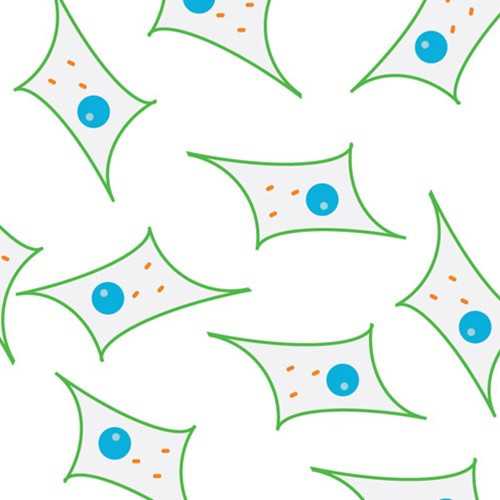MS1/19dd#7 rho-0 Cell Line
MS1/19dd#7 rho-0 cells are a mtDNA-less derivative of MS1 (MILE SVEN 1, ATCC CRL-2279), which are immortalized murine pancreatic islet endothelial cells. The MS1/19dd#7 cell line mtDNA depletion was achieved by ethidium bromide plus dideoxycytidine treatment in culture media for 19 days.
Highlights:
- Useful as recipients of mtDNA in the production of cybrids
- Screened for the retention of mtDNA
- MS1 cell line is the only line known that can give rise to benign hemangiomas
From the laboratory of Mikhail F. Alexeyev, PhD, University of South Alabama.
MS1/19dd#7 rho-0 cells are a mtDNA-less derivative of MS1 (MILE SVEN 1, ATCC CRL-2279), which are immortalized murine pancreatic islet endothelial cells. The MS1/19dd#7 cell line mtDNA depletion was achieved by ethidium bromide plus dideoxycytidine treatment in culture media for 19 days.
Highlights:
- Useful as recipients of mtDNA in the production of cybrids
- Screened for the retention of mtDNA
- MS1 cell line is the only line known that can give rise to benign hemangiomas
From the laboratory of Mikhail F. Alexeyev, PhD, University of South Alabama.
| Product Type: | Cell Line |
| Name: | MS1/19dd#7 rho-0 |
| Cell Type: | Pancreatic Endothelial cells |
| Morphology: | Epithelial |
| Species: | Mus musculus |
| Source: | Endothelium/pancreas |
| Biosafety Level: | BSL-2 |
| Subculturing: | Split 1:3 twice a week, or as needed (exhibit slow growth). Change medium 1-2 times a week. Do not grow to confluence. |
| Growth Conditions: | DMEM high glucose, 10% FBS, 1 mM pyruvate, 50 ug/ml uridine |
| Cryopreservation: | Growth medium with 10% DMSO |
| Comments: | Cells are sensitive to acidification of the medium. |
| Storage: | LN2 |
| Shipped: | Dry Ice |
MS1/19dd#7 rho-0 cells are a mtDNA-less derivative of MS1 (MILE SVEN 1, ATCC CRL-2279). These are murine pancreatic islet endothelial cells immortalized by transduction with an ecotropic retrovirus encoding SV40 large T 58-3 allele and neomycin resistance (PMCID: PMC19604). To generate MS1/19dd#7, MS1 cells were treated with 1 ug/ml ethidium bromide plus 200 uM dideoxycytidine in DMEM medium supplemented with uridine and pyruvate for 19 days, after which cells were cloned in the same medium, and resulting clones were screened for retention of mtDNA.
- Khozhukhar, N., Spadafora, D., Rodriguez, Y., and Alexeyev, M. (2018) Elimination of Mitochondrial DNA from Mammalian Cells. Curr. Protoc. Cell Biol. 78, 20 11 21-20 11 14.
If you publish research with this product, please let us know so we can cite your paper.


